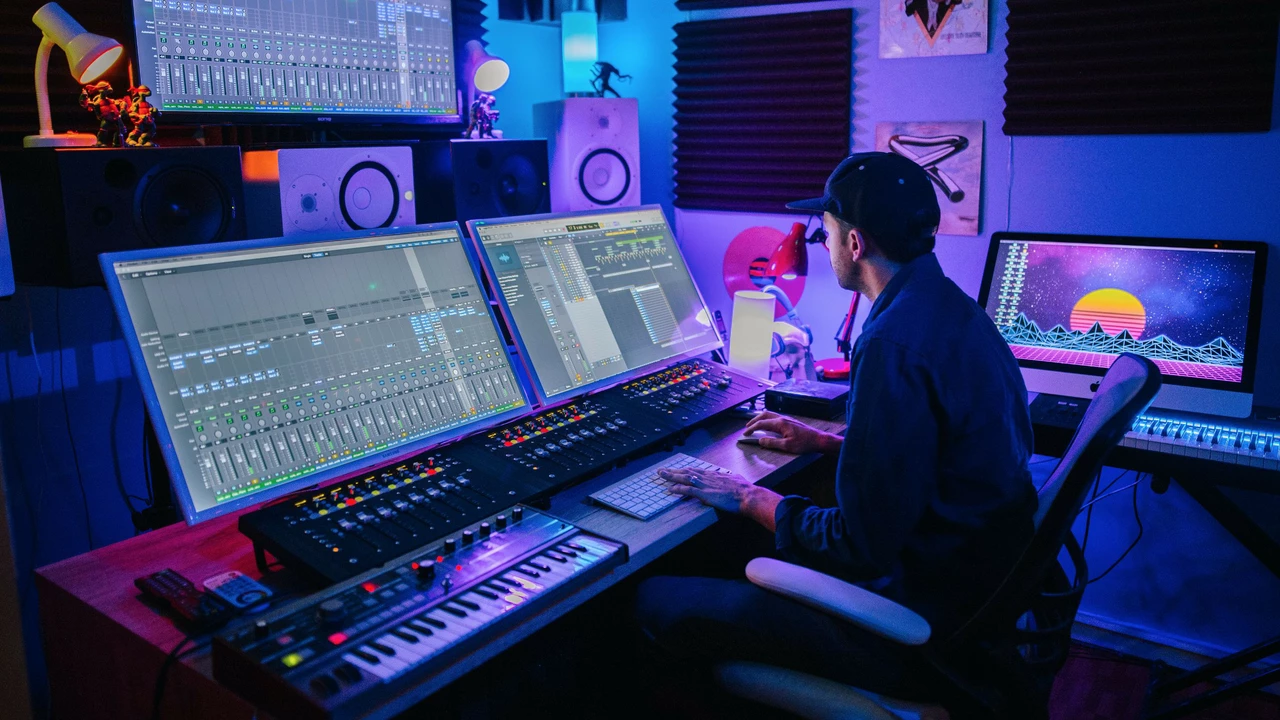Understanding Music Production Basics
As a beginner, the first step in learning music production independently is understanding the basics. These include the principles of sound and audio, the role of a music producer, and the different types of music production software available. It's also essential to familiarize yourself with various musical instruments and their sounds. This foundational knowledge will give you a robust framework to build upon as you delve deeper into your self-taught music production journey.
Choosing the Right Music Production Software
Choosing the right music production software, or Digital Audio Workstation (DAW), is crucial. Some popular DAWs include Ableton Live, FL Studio, and Logic Pro X. Each of these software has its strengths and weaknesses, so it's essential to choose one that suits your music production goals and style. Remember, the best DAW for you is the one that you find most comfortable to use.
Learning Music Theory
While it's possible to produce music without understanding music theory, having a basic understanding of it can tremendously enhance your music production skills. Music theory involves learning about scales, chords, rhythm, and melody. It's like learning the grammar of the music language, which can help you communicate your musical ideas more effectively.
Mastering Your DAW
Once you've chosen a DAW, the next step is to master it. This involves spending countless hours exploring its features and functionalities. There are plenty of online resources, including video tutorials, articles, and forums, where you can learn about your chosen DAW. The more you know about your DAW, the more you can get out of it.
Understanding Mixing and Mastering
Mixing and mastering are two critical stages in the music production process. Mixing involves adjusting the individual tracks in your song to make them sound harmonious together. Mastering, on the other hand, involves fine-tuning the final mix to ensure it sounds the best it can across all playback devices. Both stages require a deep understanding of audio processing techniques like EQ, compression, and reverb.
Experimenting with Sound Design
Sound design is the art of creating and manipulating sounds. As a music producer, you'll often need to create unique sounds to bring your musical ideas to life. This can involve synthesizing your sounds or recording real-world sounds and modifying them. Sound design can be a complex field, but it's also a lot of fun and allows for a great deal of creativity.
Practicing Regularly
Like any skill, music production requires regular practice. The more you practice, the better you'll get. It's also important to be patient with yourself. Music production can be complex and challenging, but don't get discouraged if you don't see immediate results. Remember, every professional music producer was once a beginner like you.
Seeking Feedback and Continuing Learning
One of the best ways to improve your music production skills is to seek feedback from others. This can be from friends, family, or online communities of music producers. Don't be afraid of criticism; it's a valuable tool for growth. Additionally, always be open to learning. The music production field is constantly evolving, and there's always something new to learn.
Building a Portfolio
Finally, as you grow in your music production skills, start building a portfolio of your work. This can be useful if you decide to turn your hobby into a career. A portfolio showcases your skills and style as a music producer and can be a powerful tool when networking or seeking music production gigs.





